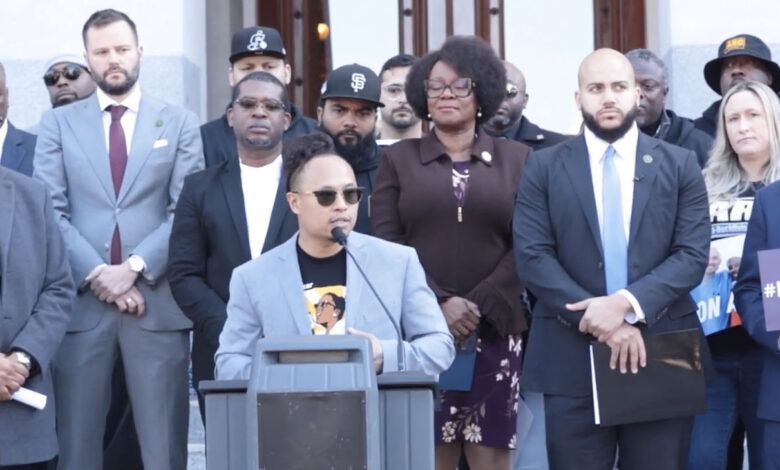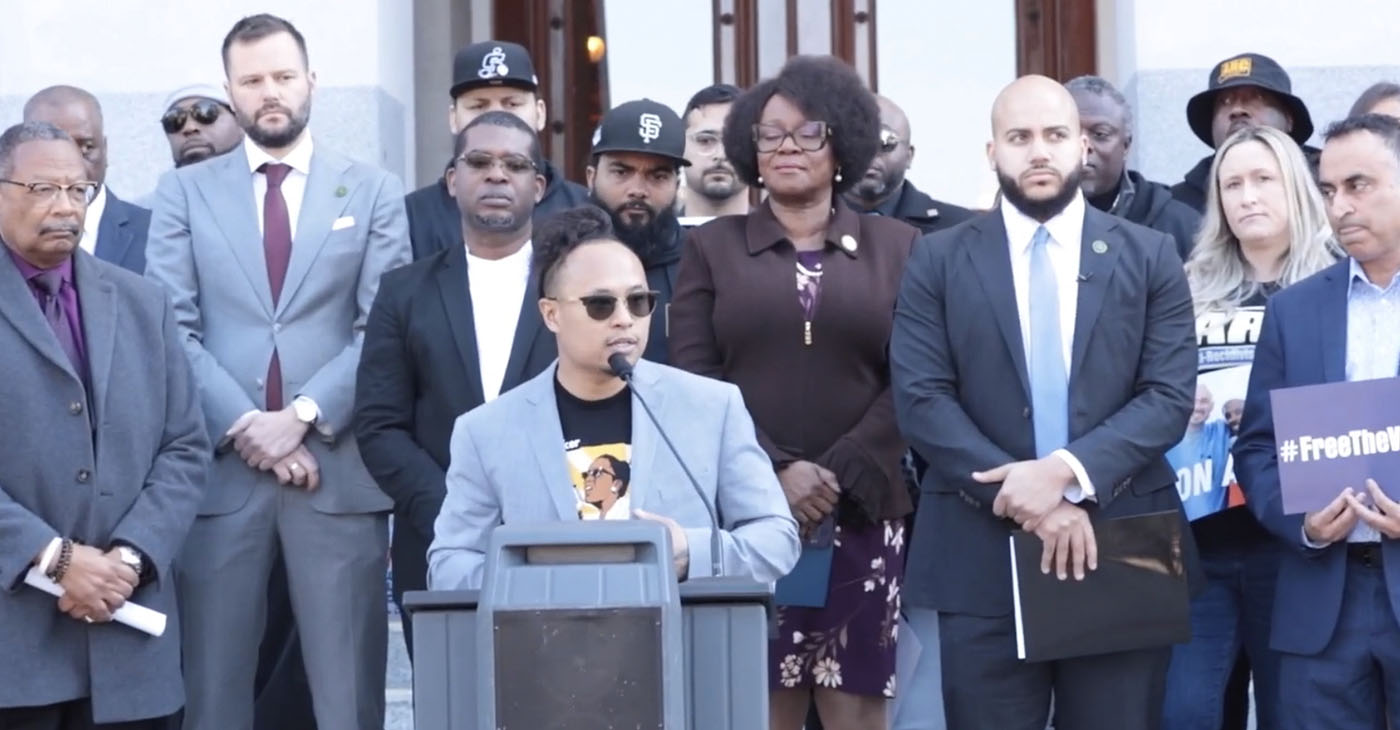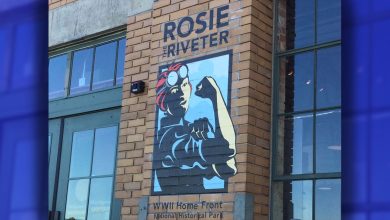Lawmakers Push Bill to Grant Prisoners Right to Vote

By Maxim Elramsisy
California Black Media
Last week, Assemblymember Isaac Bryan (D-Los Angeles) the chair of the Assembly’s Committee on Elections introduced Assembly Constitutional Amendment 4 (ACA-4). The legislation proposes amending the California Constitution to allow felons serving time in state and federal prisons to vote.
Proposition 17, approved in 2020 by California voters, enabled persons convicted of felonies on parole to vote.
If the bill passes the Assembly and Senate, and the governor approves it, voters in California could vote to join Vermont, Maine, and Washington, D.C. in allowing incarcerated individuals to vote.
“After the 13th Amendment liberated the slaves, we started to see different types of voter disenfranchisement occurring,” Bryan explained in an interview with California Black Media (CBM).
“We saw Black codes, we saw Jim Crow, poll taxes, literacy tests, felony disenfranchisement, becoming more commonplace in statewide constitutions and so it’s through that legacy that we’ve been trying to roll back all of these years and make sure that our democracy is inclusive of everybody,” Bryan commented on the systemic discrimination and disenfranchisement African Americans have endured over centuries.
Lawmakers opposing the legislation say allowing incarcerated felons to vote is a slap in the face to victims of the crimes they committed.
“I believe that it discounts the impact that this will have on people who have suffered being a victim of a very violent offense,” Assemblymember Tom Lackey (R-Palmdale) told CBM.
“Part of rehabilitation is going through a process of recognizing the seriousness of what has been done, and I think when we allow someone to exercise the most sacred privilege that we have in this country, that people have died so that we can exercise that privilege, that is an affront against those who have suffered ill, and a lot of times eternal pain,” Lackey said.
Responding to Lackey’s objection, Bryan said, “That’s like saying allowing incarcerated persons to breathe is an affront to their victims, allowing incarcerated persons to drink water, allowing incarcerated persons to hold conversations with one another.”
“There is no reason that that should be coupled with disenfranchisement and the expelling of individuals as citizens of this country.”
“There’s a difference between suspending a privilege and dehumanizing someone,” Lackey said. “Certainly no one expects someone to go through inappropriate suffering. That is not part of justice. That’s not part of our judicial process.”
David Liamsi Cruz, an advocate from Initiate Justice, was released in September after serving 13 years in prison.
“One problem that I constantly came across was that people serving their sentences alongside me felt that they didn’t have the means to improve their environment that controlled their lives or to contribute to their families’ wellness outside. Despite what many people assume, people in prison care about the same political issues that we outside do,” Cruz said.
“Those who were willing to become civically engaged with me were diligent in their work, they even brought me bill ideas that could have solved issues that were longstanding in their communities. I was honored to witness their passion for change, for an opportunity to grow, and to contribute to something way bigger than themselves. Even though I am home [from] prison now, I have not forgotten the ten thousand voices of people who are still inside and have so much to contribute. I want their voices to be heard.”
Supporters of the plan say that reducing recidivism — or the reincarceration of persons less than three years after they are released from prison — is one of the primary benefits of this plan.
“We already know a lot of the facts, and the facts are that the more someone is engaged in their democracy, they are 50% less likely to reoffend,” said Assemblymember Ash Kalra (D-San Jose) who is a co-sponsor of the bill.
“So, if we already know this, then the policy not allowing those who are incarcerated to vote has nothing to do with public safety.”
Kalra said when he was a public defender it was “plain as day” to see who was given second chances.
“Those who were given probation versus prison, and it was so connected to race and class and the same communities who have been fighting to be free since the inception, and before the inception of this nation,” he said.
Another concern is the ability for those who are incarcerated to hold public officials accountable. “Those who are incarcerated and their families are some of the most educated people in our state, far more educated than the average voter,” said Kalra. “And they will hold us accountable, and maybe that’s what people are afraid of. They don’t want that accountability from those who are suffering the most from decisions that are made traditionally in [the Capital].”
The legislation is backed by a coalition of lawmakers, including California Legislative Black Caucus members — Assemblymembers Lori Wilson (D–Suisun City), Reggie Jones-Sawyer (D-Los Angeles), Tina McKinnor (D–Inglewood), Mia Bonta (D-Oakland), Dr. Akilah Weber (D–San Diego) and Senators Steven Bradford (D-Inglewood) and Lola Smallwood Cuevas (D–Ladera Heights).
“There was a time where women couldn’t vote,” Jones-Sawyer said at the press conference held last week to announce the bill. “There was a time when African Americans couldn’t vote, and just recently we tried to get slavery out of the California state constitution and it failed, because of Democrats.”
“An American citizen’s right to vote is the most powerful right in our nation,” McKinnor said. “Let’s be clear, an incarcerated American citizen is an American citizen, and no law should ever restrict an American citizen’s right to vote. Too many Americans have died, too many Americans have sacrificed, too many Americans have been denied the right to vote for too long.”
Lackey and others who oppose the legislation, however, insist that denying a felon to vote is appropriate punishment.
“There has to be a period of reflection and a period of suspension of certain what I would call privileges or rights in order for the judicial process to be effective,” Lackey said to CBM.
Bryan said the protection of citizens’ rights is paramount.
“There are some basic human rights, and then there are some basic American rights that have to be preserved, even in the systems of accountability,” he emphasized.
The post Lawmakers Push Bill to Grant Prisoners Right to Vote first appeared on Post News Group.





